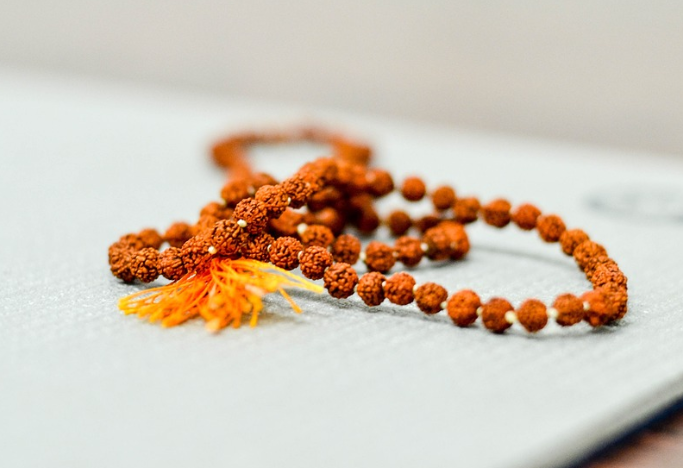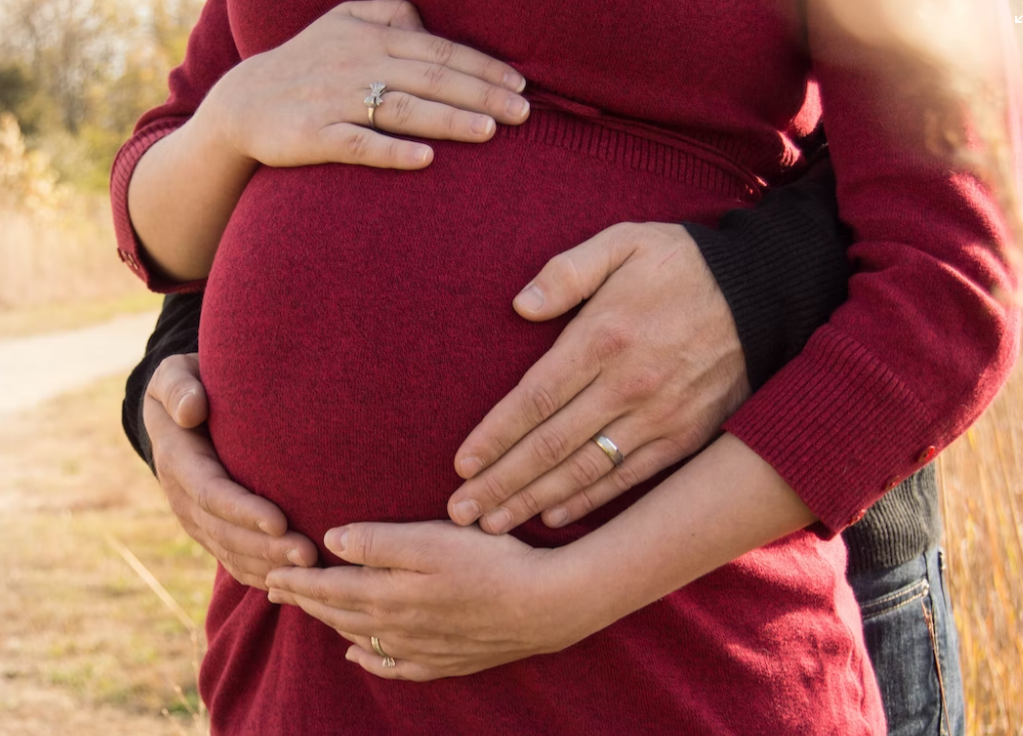Which Meditation Is Best for Anxiety?
Discover which meditation is best for anxiety in order to overcome it through meditation.

Selfpause Affirmation App
Download the app to get 1,000’s of affirmation meditations and everything you need to write, record and listen to your own.
There are many different types of meditation, but they all have similar goals: to relieve stress and calm the mind. A few examples of these meditations include Deep belly breathing, Mantra, Concentration, and Mindfulness. Find one that best suits your needs. And remember, the more you practice, the more you’ll benefit.
Mindfulness

Mindfulness meditation for anxiety focuses on bringing awareness to the sensations of the moment. When you notice your anxiety, its intensity of it goes down. This helps you cultivate balance and the fortitude to accept things as they are. It’s very useful for people suffering from anxiety and other kinds of stress.
To do this, simply sit comfortably and imagine that you are experiencing a feeling of anxiety. When you do so, let go of the need to analyze it. You may even find it helpful to imagine your anxiety in detail, so you can feel it physically. Once you feel this, you’ve begun the practice of mindfulness meditation for anxiety.
A recent study by the University of Waterloo suggests that just 10 minutes of mindfulness can significantly reduce ruminative thoughts. During the study, participants were split into two groups. One group listened to a guided meditation while the other group listened to an audiobook. Both groups were then sent back to work.
As with any form of meditation, it is important to find a method that works for you. Some people find that it is easier to meditate in the mornings, while others find that it helps them sleep better at night. It’s important to remember that mindfulness meditation can be difficult at first. You may struggle to find the time to meditate, or you may be distracted by judgmental or fearful thoughts. However, you can find the right meditation technique for you and experience a significant decrease in your anxiety.
There are many different ways to practice mindfulness meditation for anxiety. This type of meditation can help you manage your stress and anxiety and reduce the effects of rumination. It can also help you gain control over your unwanted thoughts and change how your brain responds to stressful situations.
Mantra

Whether you want to reduce your anxiety levels for good, or simply find ways to overcome the symptoms, you can use Mantra meditation to help you calm down. You can practice these simple, yet profound techniques daily. You can also create a personalized mantra that is particularly helpful for you. This will allow you to reframe anxious thoughts and keep them in perspective.
One such mantra is “low-kah sah-moss-tah soo-kee-no buh-vahn-too,” which means “may all beings be happy and free.” The mantra is related to the lotus flower, a symbol of hope that grows in murky waters.
Mantra meditation for anxiety requires a commitment to practice and follow through. It is effective for many people, but it may not work for everyone. It is important to talk to a therapist or mental health professional if you feel that the mantras are not helping you. For those who are not comfortable singing, try to start softly.
In Sanskrit, mantras are repeated phrases that have healing powers. Mantras are similar to affirmations, as they steer the mind toward a focused point. A mantra can be a simple phrase like “be here now” or “let it go.” Both mantras are powerful ways to quiet your mind and relieve symptoms of anxiety.
When you practice Mantra meditation for anxiety, you can focus on one word or phrase at a time. By repeating a specific phrase, you will have a constant reminder of your intention. When you are anxious, you may feel that you are not doing enough. However, this can be detrimental to your mental health and could lead to burnout.
Concentration

To help yourself reduce your anxiety, concentrate on focusing on the breath. To do so, sit in a comfortable position. Your weight should be evenly distributed throughout your body. Inhale deeply and extend your exhale. Once you feel relaxed and balanced, repeat this process. Your anxiety will subside.
In addition to reducing stress, meditation helps you focus on the present moment. It helps you recognize the causes of your thoughts and find ways to minimize their effects. By focusing on your breathing, you will become more relaxed and less prone to ruminative thoughts. This will help you cope with problems in your life.
Concentration meditation is an excellent technique for anxiety relief. By focusing on one single activity, you can control your thoughts and help yourself overcome your fear. It is also helpful for reducing panic attacks and other physical symptoms. During this process, you will focus on your breath, a sound, or a mantra you repeat to yourself. It helps you tune out negative thoughts and emotions so that you can cope with anxiety and other negative feelings.
To start practicing meditation, choose a quiet place. Once you find a comfortable spot, focus on the breath and your breathing pattern. Once you feel relaxed and calm, you may focus on a single word, sound, or perception, and observe it. Then, you can name the new perceptions.
As with any meditation technique, you must choose a place that is quiet and free from distractions. A quiet room with few distractions is the best for beginners, but you can practice concentration meditation in any location and during stressful situations.
Deep belly breathing

Deep belly breathing meditation is a calming practice that can be done anywhere. You can practice it standing up, sitting in a chair, or lying on a yoga mat. Just make sure to wear loose clothing and keep your knees slightly bent. If you are sitting, you should bend your knees so that your feet are flat on the floor.
Practicing deep breathing is also helpful when dealing with anxiety. You can practice it with a recording, a friend, or through a meditation group. Deep breathing exercises can reduce anxiety and improve overall health and well-being. They can even be used to manage chronic stress. The most important thing is to start doing them regularly.
Start by placing both feet flat on the floor. Your feet should be about hip-width apart. Breathe deeply and naturally without force. Try to relax your muscles and lower your heart rate by counting slowly from one to five. Then, try to hold this position for about 5 minutes.
Aside from deep breathing, other forms of meditation can help you manage your anxiety. Tai chi and yoga are good choices for relaxation. According to Dr. Kennedy, getting outside in nature is another effective way to reduce anxiety. She also suggests making plans to relax and engage in leisure activities to avoid stressful situations.
Anxiety can get worse over time, but if you’re struggling with this problem, see your doctor. A doctor can prescribe medication or therapy to help you cope. There are also many ways to cope with anxiety without medication or therapy.
Loving-kindness

Loving-kindness meditation is a meditation technique that focuses on the way we think and feels about ourselves. Unlike other types of meditation, it does not focus on judging ourselves. Instead, it focuses on treating ourselves with love and compassion and looking at others with love. This form of meditation originated in ancient India.
Practicing this technique will help you gain a sense of inner peace and well-being. It will help you develop feelings of compassion for yourself, and will help you cultivate a positive emotional state. You can even use loving-kindness to think about the people who are dear to you.
The meditation process is easy to start. You can start by picturing sunlight and loving kindness. Once you have your visual image, you can start the meditation process. Once you feel relaxed and happy, you can slowly expand your meditation sessions. By focusing on the present moment, you can create an environment that will help you overcome anxiety.
Several studies have shown that practicing loving-kindness meditation can reduce negative emotions and boost positive ones. It decreases depression and social anxiety and increases feelings of joy, happiness, and appreciation. In addition, it increases life satisfaction. It also reduces self-criticism, a contributing factor to psychopathology.
In a recent study, psychologists found that people who practice loving-kindness meditation are more likely to have a less anxious outlook. The study was conducted by Kristen Neff, an Associate Professor of Educational Psychology and pioneer of applied positive psychology. She also studied the relationship between loving kindness and other forms of compassion. In her book, “Self-Compassion: The Proven Power of Being Kind,” Neff explained the link between compassion and meditation.
In another study, meditators who practiced loving-kindness meditation had a higher capacity to recognize other people’s subjective feelings and experiences. Their brains were also more responsive to positive emotion and stronger connections with others. Moreover, they had more positive emotions than non-meditators. Although there is a need for further research, it’s already apparent that loving-kindness meditation can improve mental health.
Our Top FAQ's
Practicing meditation has been shown to have a number of potential benefits for reducing anxiety, such as promoting relaxation, increasing mindfulness, and improving overall well-being.
The best type of meditation for you will depend on your individual needs and preferences. Some common types of meditation that may be helpful for anxiety include mindfulness meditation, breath awareness meditation, and loving-kindness meditation. It may be useful to try out different types to see which one works best for you.
Some specific techniques that may be effective for reducing anxiety through meditation include focusing on the breath, using a mantra or affirmation, and practicing progressive muscle relaxation. It’s also important to make sure that you are practicing in a comfortable, quiet environment where you will not be interrupted.
While meditation can be a powerful tool for managing anxiety, it is not a substitute for medical treatment. If you are experiencing severe anxiety or other mental health issues, it is important to consult a qualified healthcare professional for appropriate treatment.
There are generally few risks associated with meditation, but it is possible that some people may experience negative effects if they are not practicing properly or if they have underlying mental health conditions. It is always a good idea to consult with a healthcare professional before starting any new meditation practice.
